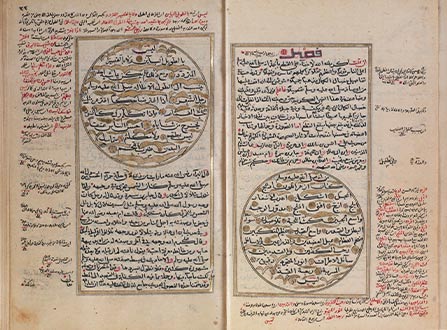Mawlid al-Nabī al-Sharīf
Muslims around the world commemorate the birthday of the Prophet Muhammad, Mawlid al-Nabī al-Sharīf, in the third month of the Islamic calendar, Rabīʽ al-Awwal. While some choose to celebrate privately at home or with other worshippers in their local mosques, others mark the occasion with public festivities, processions, and the recitation of poetry and stories celebrating the life of the Prophet.
Sunni and Shia authorities disagree on the precise date of the Prophet’s birth, with Sunnis claiming the 12th of Rabīʽ al-Awwal and most Shias the 17th of the month. Some Wahhabi and Salafi Muslims oppose marking the holiday, claiming it is an “unlawful innovation” in the tradition; the holiday is not celebrated in Saudi Arabia and Qatar for that reason.
The celebration of the Mawlid began centuries after the life of the Prophet Muhammad himself, who was born in Mecca in 570 CE. The earliest account of state-sponsored Mawlid festivities describes those held by the Ismaili Fatamid dynasty, which ruled Egypt and surrounding territories from 969 to 1171. According to these accounts, celebrations included the distribution of sweets to government officials, Quran readings, and public sermons. However, the commemoration of the Prophet’s birthday is mentioned in Shia sources at least a century before the first reference to the Fatamid celebrations, and scholars believe the Mawlid first originated among Shia communities. The holiday has also had close connections with Sufi circles.
One of the central elements of many Mawlid observances, historically and today, is the recitation of narratives describing the birth of the Prophet. The vast majority of these narratives begin with the primordial creation of the Light of Muhammad at the dawn of time; the light descending through various stations until it is transferred to the bodies of the Prophet’s parents; his miraculous birth, attended by angels; and his infancy. The numerous and diverse Mawlid accounts weave together popular, oral narratives and scholarly sources, and, interestingly, give pride of place to female characters, especially the Prophet’s mother Āmina and his wet nurse Ḥalīma. Among other examples, many narratives relate that during Muhammad’s birth, described from his mother’s perspective, Āmina was attended by prominent biblical women: Sarah, Hagar, Moses’ sister Miriam, and Āsīya, the daughter of Pharaoh who rescued the baby Moses from the Nile.




